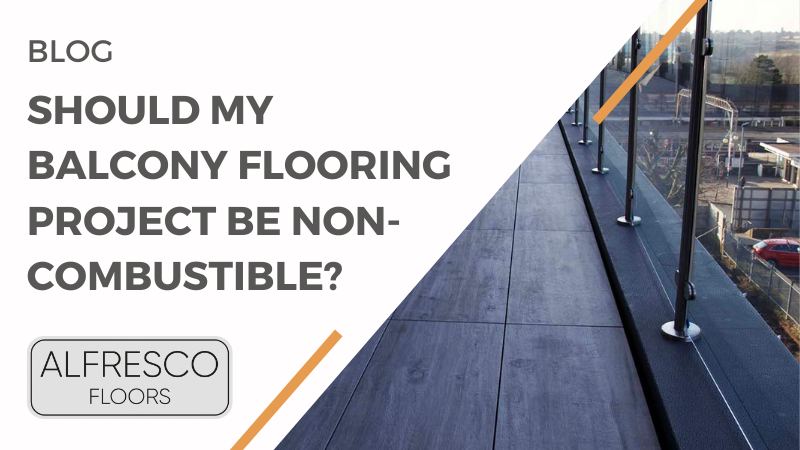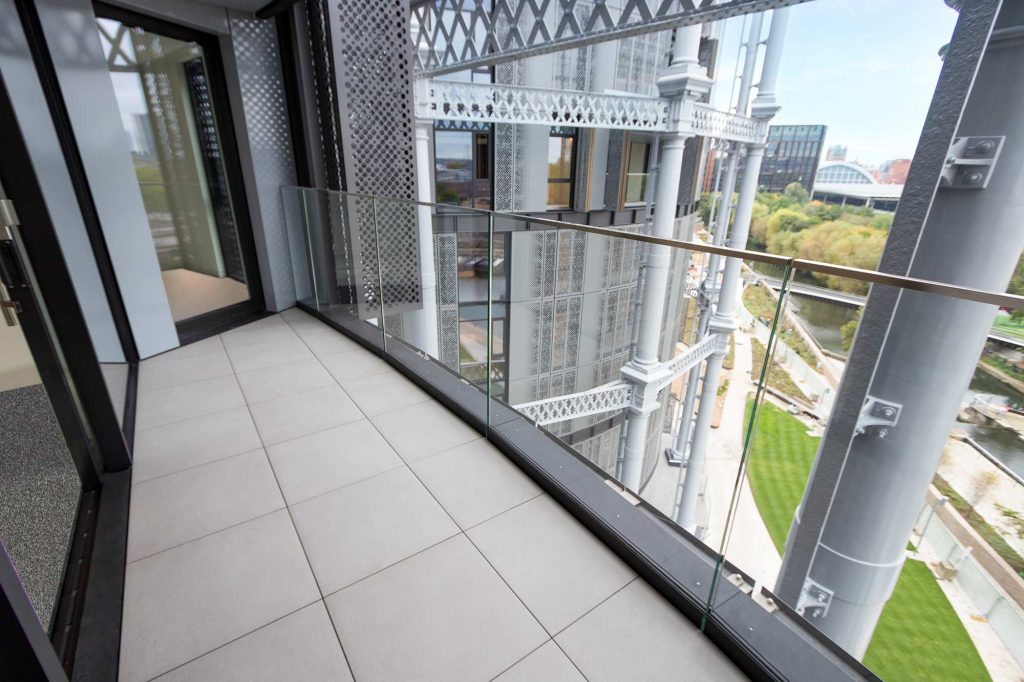
23 Aug Should My Balcony Flooring Project Be Non-Combustible?
Ever since the Grenfell Tower tragedy in 2017, the construction industry has been working towards creating products that are safe and entirely non-combustible.
This is particularly important for high-rise projects where the potential consequences of constructing with combustible materials can be far more serious.
With that in mind, new regulations and government legislation have been slowly introduced in the subsequent years following Grenfell. With this reform finally starting to be seen throughout the entire construction industry, particularly when it comes to balcony flooring, it’s only a matter of time before your next project has to be specified to these standards.
In this blog, we discuss the sorts of projects that should be using non-combustible material and how these materials are becoming more common across all balcony projects.

When To Use Non-Combustible Balcony Flooring
Following the Grenfell Tower tragedy and subsequent Hackitt Review, the government published a comprehensive guide for building owners of multi-story, multi-occupied residential buildings, ensuring their buildings were constructed using much safer materials.
Among these, the most important regulation for specifiers looking ahead to their next balcony flooring project is a complete ban of combustible materials in external walls and specified attachments (i.e., balconies) on new or existing buildings of over 18-meters.
Despite an 18m height guidance in England, Scotland has its own building guidance, declaring that buildings over 11m should use non-combustible material.
On top of this, in August 2020, new British Standards were introduced to give better guidance on the design of balconies and terraces: BS 8579:2020. They recommend that non-combustible materials should be used for balconies on buildings over 11m, and go even further to say that stacked balconies on buildings of any height should use non-combustible materials.
It’s also not uncommon for building leaseholders to insist that Class A materials be used on all balcony flooring projects. Regardless of the size of the building, Class A materials are becoming the most desired flooring option and a way of protecting residents nationwide and future-proofing the building.
In a nutshell, this means that although there is full legislation available, that dictate where Class A-rated materials must be used, specifiers and building lease owners are becoming much more aware of their benefits and using them as a means of best practice.

The Fire Rating System For Construction Products
BS EN 13501-1 is a British Standard that measures the reaction to fire, (and therefore the combustibility) of construction products through a specified series of tests.
Equivalent to Euroclass, these standards result in the tested product being awarded a rating from A through F, which allows specifiers and contractors to ensure they are selecting the correct product to meet the regulations.
A1 and A2 are the materials with the highest levels of performance. Where A1 materials are entirely non-combustible, A2 has limited levels (whilst still being non-combustible), with ratings B down to F providing varying levels of combustibility in ascending order.
When looking for non-combustible material for your balcony flooring project, it’s important to remember that only those materials rated Class A are non-combustible and therefore the only choices suitable for use.
All of Alfresco Floor’s balcony flooring options are rated Class A and are therefore suited for all types of projects.

Conclusion
To answer the question asked at the top of this blog; yes, your next balcony flooring project should be non-combustible.
Although the regulations highlight the instances in which these Class-A rated, non-combustible materials need to be used, they are becoming more and more common in projects of all shapes and sizes.
Even if projects are below the important 18 metres, Class A-rated materials are becoming a top priority for projects, with building leaseholders specifying them when they’re not legally required.
This is a fantastic change in mindset and shows that fire safety is becoming a top priority when it comes to projects, regardless of size.
If you’re specifying for and getting ready to speak to suppliers for your next balcony flooring project, then contact our team today. With an extensive range of Class-A-rated balcony flooring options, make your next project your safest.



Sorry, the comment form is closed at this time.